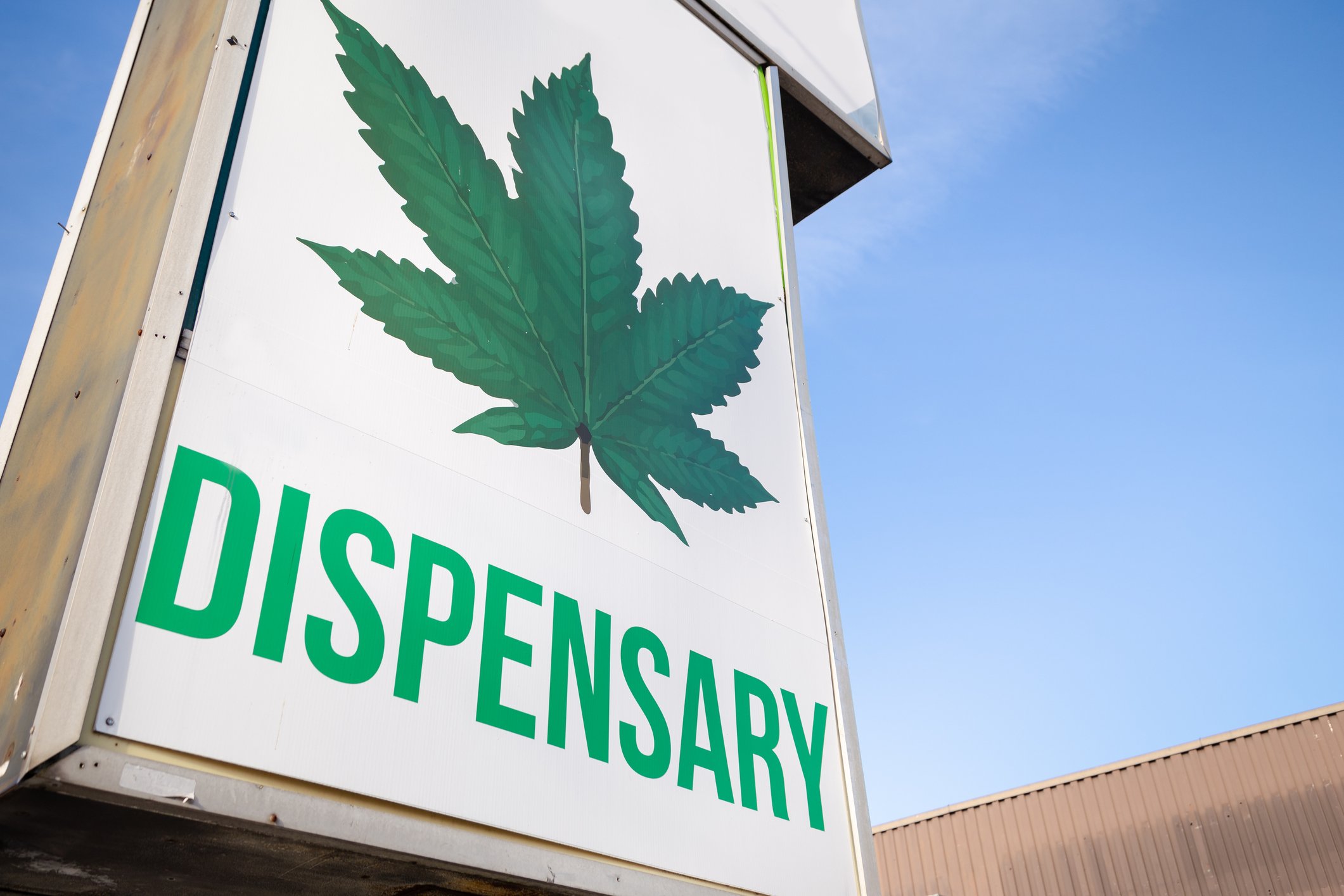The California market for pot has the potential to be the most lucrative in the world. In 2019, research company BDS Analytics already expected the market to be worth more than $3 billion. However, there's still a lot more potential for that to get much bigger over the years, and BDS expects it will grow to more than $7 billion in 2024. But that will ultimately depend on the success of the black market, which continues to be a dominant force in Calfornia. The good news is that there are a couple of reasons why legal pot shops could get a boost as early as this year.
1. Regulators are making it easier to spot illegal vendors
While some consumers opt for illegal vendors, many simply don't even know they're buying from an unlicensed pot shop. The state is making that process easier. In December, the Bureau of Cannabis Control (BCC) in California launched a campaign where stores would display a quick response code (QR code) that customers could then scan on their smartphones to confirm that the pot shop was legal. Stores could voluntarily post the codes in their windows, giving their customers assurance that they aren't underground dealers.
The campaign is voluntary, but in January the BCC took it one step further and proposed that there should be regulations that mandate businesses to post QR codes in their stores. Bureau Chief Lori Ajax believes it is important for consumers: "The proposed regulations will help consumers avoid purchasing cannabis goods from unlicensed businesses by providing a simple way to confirm licensure immediately before entering the premises or receiving a delivery."

Image source: Getty Images.
Finding a legal dealer may be particularly important for consumers in light of the lung injuries that have been largely tied to illegal vape products. As of Feb. 4, 2020, the Centers for Disease Control and Prevention says there have been 64 people who have died from these injuries and a total of 2,758 cases.
Thus, the need for buying from a legal pot shop becomes a safety issue for consumers to ensure they aren't buying risky black-market vapes.
2. Weedmaps is no longer helping promote illicit vendors
A popular way for cannabis consumers in many parts of the country to find a pot shop is by using Weedmaps, an app that helps locate the nearest store. The problem in California was that it became a way for illegal pot shops to advertise and for consumers to find them. However, the courts have come down on Weedmaps, directing it to stop assisting the black market. The site has since imposed rules, such as requiring stores to enter a license number in order to advertise.
In January, Weedmaps removed approximately 2,700 listings from its website as it looked to prevent illicit pot shops from making their way onto the platform.While this doesn't stop consumers from going to illegal pot shops, it certainly makes it a lot more difficult to find them, and that itself could improve the prospects for the legal market.
With California's markup rate on marijuana excise tax going up from 60% to 80% this year and there simply not being enough legal pot shops available to meet demand, illegal vendors have the advantage of operating where licensed dealers cannot, while also offering lower and more competitively priced products.
Big win for cannabis operators in California
One stock that can stand to benefit from these developments is Harvest Health & Recreation (HRVSF +0.00%). With four stores in California, the company could see a lot more traffic now that there's more of a focus on legal dealers in the state and Weedmaps cracking down on illegal pot shops.
Not only can that help improve the company's sales, it can also decrease the costs it needs to spend in order to acquire consumers, helping it inch closer to profitability. When the company released its third-quarter results in November, Harvest Health incurred a loss of $84.6 million on net revenue of $79 million over a nine-month period. Although sales more than doubled from the prior-year period, the $3.6 million profit Harvest Health earned last year has since disappeared, with the company now deep in the red.
Strengthening the California market can go a long way in helping Harvest Health generate more sales in the state and improve both its top and bottom lines in the process. That would also help the struggling marijuana stock, which has fallen more than 70% over the past 12 months. That's even worse than the 60% decline that Horizons Marijuana Life Sciences ETF has gone on during that time.
The good news is that a better outlook for the California market and stronger numbers can help turn things around for Harvest Health.






